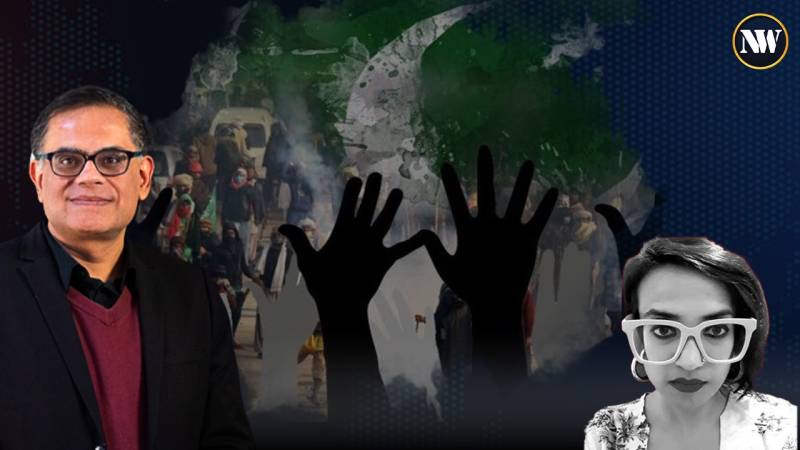Pakistan, a country of rich cultural diversity and tumultuous political history, has been grappling with numerous human rights challenges. Rabia Mehmood in conversation with Raza Rumi shed light on the complex environment of fear and repression prevailing in the country. They stress the need for a comprehensive approach to address ongoing violations and advocate for a broader consensus among politicians and civil society to curb institutional excesses. The discussion examines the historical context of repression and censorship, as well as the class division that has led to the abandonment of the poorest workers who were manipulated into supporting a particular political party.
The current state of human rights violations in Pakistan cannot be solely attributed to one political party. Instead, the discussion highlights that certain trends have been deeply ingrained for decades, leading to a cycle of repression and excesses. The activists emphasize that a collective effort is required from all stakeholders, including politicians and civil society, to put an end to these pervasive challenges.
One notable aspect discussed in the interview is the recent hearing in Capitol Hill, where U.S. congressmen deliberated on the status of human rights in Pakistan, with a specific focus on media freedoms and repression. Amnesty International's U.S. chapter presented a comprehensive overview of media freedoms and the threats journalists face in Pakistan, making it clear that the country remains one of the most dangerous places for journalists to report from.
The interview further delves into concerns about some other presenters who acted as spokespeople for human rights violations. Notably, a PTI lobbyist representing the political party of Imran Khan suggested that Pakistan should be punished for its current issues with democracy and civilian supremacy. The activists express their dismay over this stance, as the call for punishment would ultimately harm ordinary citizens, who are already grappling with economic challenges.
The repression of journalists and media censorship in Pakistan has reached alarming levels, creating a hostile and intimidating environment for media freedom. Journalists face threats, intimidation, and violence from various actors, including state authorities and extremist groups, leading to self-censorship and curtailed reporting. Enforced disappearances of journalists critical of the government or powerful interests further add to the climate of fear and uncertainty. Legal and regulatory restrictions, along with economic pressures on media organizations, compromise journalistic integrity and impartiality. Internet censorship and the blocking of critical websites limit access to information and stifle dissent. Lack of accountability for crimes against journalists perpetuates a culture of impunity.
The conversation sheds focus on the period during Imran Khan's regime, underlining the widening of red lines and how journalists' mental health suffered as a result of oppressive censorship measures. However, they are quick to clarify that media repression is not exclusive to PTI's rule; rather, it has been a longstanding issue in Pakistan, requiring a more in-depth understanding of the country's political context.
One significant point raised in the interview is the issue of class division. The poorest workers who were manipulated into supporting PTI during its reign have now been abandoned by the party's leadership. These workers are now facing arbitrary arrests and an uncertain future. The activists emphasize that such abandonment is unacceptable and highlight the need for political parties to support their followers genuinely.
Advocating for accountability of those who incite violence and repression, the activists argue that if PTI and its leadership are serious about human rights, they should wholeheartedly resist authoritarianism and work towards the release of the arrested workers, men, and women. They call for a stronger focus on the protection and promotion of human rights as a collective responsibility. Additionally, they encourage international organizations and governments to leverage diplomatic pressure to address human rights issues in Pakistan.

